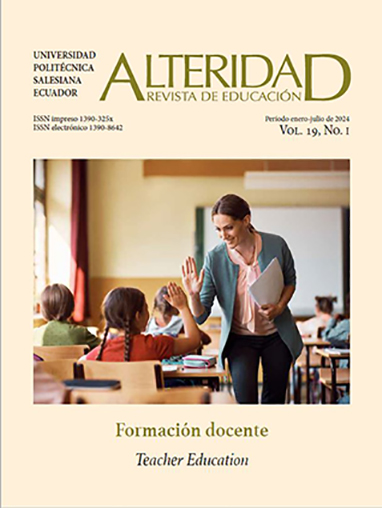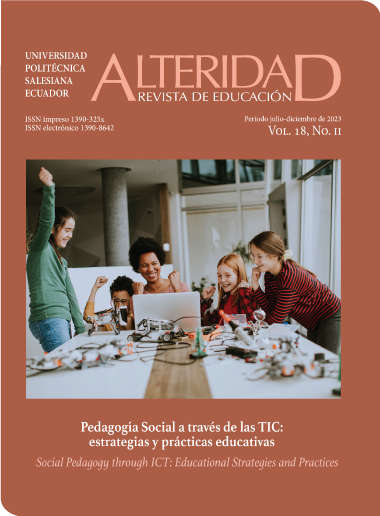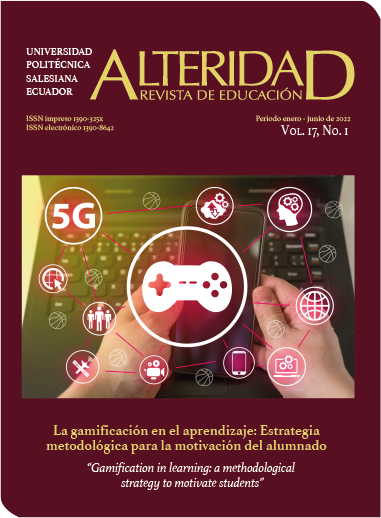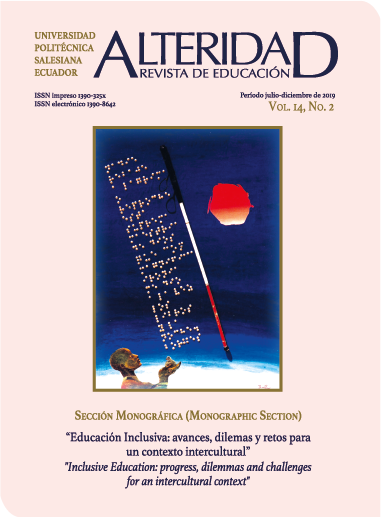(January-June 2025): Large scale educational reforms and policies
Vol. 20 No. 1 (2025)
(January-June 2024): Teacher training
Vol. 19 No. 1 (2024)
(January-June 2023): Responses of Educational Institutions to Technology Addiction.
Vol. 18 No. 1 (2023)
(July-December 2018): Education & Sexuality
Vol. 13 No. 2
(january-june 2018): Higher Education and Indigenous Peoples in Latin America
Vol. 13 No. 1
En América, la construcción de los Estados poscoloniales estuvo marcada por políticas de homogeneización sociocultural, en las que predominaron proyectos de “blanqueamiento”. Las poblaciones de la región que no aceptaron dichos proyectos han sido objeto de embates de los Estados orientados a lograr su exterminio físico o su aculturación forzada, siendo los pueblos indígenas y afrodescendientes los más afectados.
En el caso particular de los pueblos indígenas, su historia ha estado marcada por intensos procesos de imposición y resistencia, dentro de los cuales las políticas llamadas indigenistas han sido centrales. Un ejemplo significativo han sido aquellas que han mantenido las relaciones coloniales al interior de los Estados nacionales latinoamericanos, utilizando a los sistemas educativos como una de sus herramientas fundamentales. En respuesta a ellas, los pueblos indígenas promovieron cambios importantes en la impronta educativa, especialmente durante el siglo XX, dando origen a diversas modalidades como la de educación indígena, educación bilingüe, educación bilingüe bicultural y, más recientemente, educación intercultural.
En el caso particular de los pueblos indígenas, su historia ha estado marcada por intensos procesos de imposición y resistencia, dentro de los cuales las políticas llamadas indigenistas han sido centrales. Un ejemplo significativo han sido aquellas que han mantenido las relaciones coloniales al interior de los Estados nacionales latinoamericanos, utilizando a los sistemas educativos como una de sus herramientas fundamentales. En respuesta a ellas, los pueblos indígenas promovieron cambios importantes en la impronta educativa, especialmente durante el siglo XX, dando origen a diversas modalidades como la de educación indígena, educación bilingüe, educación bilingüe bicultural y, más recientemente, educación intercultural.
(july-december 2017): Education & Citizenship
Vol. 12 No. 2
En las sociedades actuales, los niños, adolescentes y jóvenes habitan la mayor parte de su tiempo dentro del sistema educativo escolarizado y es allí donde configuran sus modos de estar y actuar en la sociedad. Asimismo, es el espacio escolar y de forma concreta la escuela, la encargada de estructurar y diseñar sus expectativas como sujetos sociales que, en gran medida, han sido producidas por su experiencia social dentro de la institución educativa. Las instituciones educativas tienen como principales objetivos y responsabilidades impulsar y fortalecer la formación académica del segmento estudiantil que acude a los salones de clase.
(January-June 2017) Family and Education in the 21st Century: Parental Training for New Social Challenges
Vol. 12 No. 1
The family as the original cell of social life is called to the education of its members in all areas where these are developed. It is therefore important that parents, as heads of families, are prepared to face the new challenges that our current society poses to us. With the development of new technologies and media, training in pedagogical strategies adapted to current rhythms and learning styles represents an emerging theme. Knowing that this is an emergency, it is necessary to study those factors that help children, young people and, in general, families, achieve their own personal, social, educational and spiritual fulfillment. Hence, in the Monographic Section of this edition, a set of specialists, from different approaches to science, show an overview of the current situation of families and their formation, combining it with school education, as well as a series of councils, Techniques and strategies to promote their development.
(july-december 2016) Concerns of Higher Education in the Ibero-American context
Vol. 11 No. 2
Current society, both in the world and in the Ibero-American context, poses several and multiple challenges to higher education. Among others, although there have been transformations such as the expansion of enrollment, the issue of equity in access remains latent; Although the percentage of researchers and professors with an equivalent doctor degree has increased, not all Ibero-American university teachers are characterized by having the relevant training; And as universities do not have efficient programs, the expansion of coverage becomes fictitious if the percentage of graduates is analyzed.
(January-June 2016) Education and Human Rights
Vol. 11 No. 1
Education is recognized for the first time as a human right (inherent to every human being, equal for all and universal) in the Universal Declaration of Human Rights of the United Nations adopted in 1948 after the Second World War. Education as a human right is part of the second phase of human rights that includes economic, social and cultural rights. (The first phase was the political and civil rights that were declared at the end of the 18th century under the influence of enlightened thought. Economic, social and cultural rights were originally promoted by socialist countries and by supporters of the welfare state.
Article 26 of the Universal Declaration of Human Rights establishes that everyone has the right to education and that it must be free and compulsory at least in the initial stages of education. Secondary, technical and vocational education should be generally accessible and higher education should be accessible to all on the basis of merit. Article 26 also states that education should promote the development of human personality and strengthen respect for human rights and freedoms. It should also promote understanding, tolerance and friendship among nations and racial and religious groups.
Article 26 of the Universal Declaration of Human Rights establishes that everyone has the right to education and that it must be free and compulsory at least in the initial stages of education. Secondary, technical and vocational education should be generally accessible and higher education should be accessible to all on the basis of merit. Article 26 also states that education should promote the development of human personality and strengthen respect for human rights and freedoms. It should also promote understanding, tolerance and friendship among nations and racial and religious groups.
(July-December 2015) Educational evaluation, conceptions and practices for quality improvement
Vol. 10 No. 2
The educational evaluation has already gone a long way conforming different traditions, mainly Anglo-Saxon, Francophone and later Latin American. In general, it could be said that, from being an activity that emerges as an empirical social practice, through pragmatism to professionalisation, reveals transitions that show an epistemological interest to give reliability and validity to the evaluation of processes and results, As well as the information generated to support decision making. In that discourse, the debate about the underlying rationality was and remains determinant, in order to form a corpus as a specific and necessary field of knowledge, which contributes to improving the quality of education in different latitudes and levels of education systems . Gradually, typologies have been developed, enriching their conceptions, models, methodologies and practices by increasing awareness of the complexity of processes and their importance in confronting the limits and scope of a technical rationality in the face of a critical rationality that each Again, insofar as it confers a leading role to the various social actors who are directly involved in evaluation actions. This fact has also been recognized in the main approaches to national and international educational policy, which emphasizes that through evaluation should be given public assurance of the quality of education.
(january-june 2015) Media Literacy and Education
Vol. 10 No. 1
Media literacy has become a cross-cutting axis of the education system around the world. People are becoming more and more users of the media and we need to know their languages, their codes to interpret them and integrate them into our lives in an intelligent way. UNESCO, the UN, the European Parliament ... have in the past decade issued resolutions and councils for all States to integrate media literacy into their school curricula. This monographic makes a series of proposals for this intelligent consumption of the media from families and schools.

























